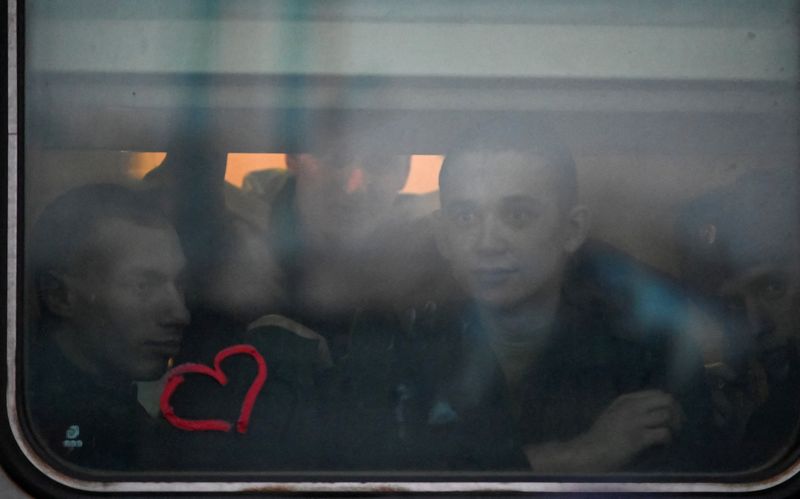Russia is beginning to experience economic difficulties
2022.12.06 07:13
[ad_1]

Russia is beginning to experience economic difficulties
Budrigannews.com – The invasion of Ukraine by Russia sparked Europe’s bloodiest land conflict since World War II, decimating Ukrainian cities, killing thousands of people and displacing millions, and harming the global economy.
Many European and Ukrainian officials did not believe it would occur, despite warnings from U.S. intelligence prior to February 24. It was a great deal a lot for the Russian armed force to gnaw off, went the reasoning.
However, Putin, who turned 70 in October, was enraged by what he saw as Ukraine’s perilous Westward pivot and nonetheless ordered an invasion, which he referred to as “a special military operation.”
His objective was to accelerate what he saw as an inevitable historical shift toward a multipolar world and to eliminate what he saw as excessive and potentially dangerous Western influence in an area where Moscow once held sway.
His desire to expand Russia, already the world’s largest country by territory, became clear in September when he announced the annexation of four Ukrainian regions that his troops partially controlled, a move that the West deemed illegal.
Putin has not had a good start to the war. From the capital of Ukraine and then from the north-eastern Kharkiv region, his forces were defeated. They were forced to leave the west bank of the River Dnipro and the southern city of Kherson in November.
His army, which still controls a significant portion of Ukraine, has been more successful in destroying Ukrainian infrastructure as winter approaches, causing prolonged power and water outages, which Moscow claims serves a military purpose. Ukraine has blamed Russia for psychological warfare.
The commander of Russia’s forces is under pressure to perform on the battlefield after overseeing the Kherson withdrawal.
People are trying to get on with their lives at home, where there is almost no room for dissent and hundreds of thousands of young men are missing from the workforce because they fled abroad to avoid being called up.
However, they can’t avoid wartime references.
Rolling talk shows with guests who explain why the war is necessary dominate state television schedules, and funerals for war dead, whose number is unknown in Russia but estimated by the West to be in the tens of thousands, have become commonplace.
Eight sources told Reuters in October that Putin’s hold on power remained firm and that unofficial polls give him a 70-80% approval rating, despite military setbacks and political infighting. If defeat beckoned, some said, that could change quickly.
Geopolitics was upended by Russia’s invasion.
Even though Putin opposed NATO’s expansion, the alliance, which French President Emmanuel Macron called “brain death” in 2019, is poised to include Finland and Sweden.
The majority of Ukraine’s financial and military support has come from the United States, which the Democrats feared would become too isolationist under former president Donald Trump.
Before February 24, Ukraine had sometimes had trouble getting the West interested in a slow-moving war against Russian proxies in its east. Now, it has received aid and support from the West that once seemed impossible.
Additionally, Russia, one of the largest producers of energy and commodities in the world, has been subjected to the most severe Western sanctions ever imposed on it.
This, in addition to its own retaliatory actions, has diminished its position as one of Europe’s largest suppliers of oil and gas, disrupted global markets for grain and fertilizer, fueled global inflation, and elevated nuclear tensions to levels not seen since the Cuban Missile Crisis.
WHAT IMPACT WILL IT HAVE ON 2023?
Even a brief ceasefire appears unlikely given Ukraine’s insistence that Russia leave its territory—including the annexed Crimea—before any peace talks take place.
Russia is likely to try to thwart additional Western attempts to isolate it in 2023.
Iran, North Korea, and Belarus’ political leaders continue to be steadfast supporters. Although Beijing has not been as outspoken in its public support for Moscow as was anticipated, China and India have stepped in to purchase Russian oil at significantly reduced prices.
In the meantime, cracks have begun to appear in the former Soviet Union, where some nations are attempting to alter the status quo while Russia is busy in Ukraine, putting pressure on Moscow’s influence.
Something like two Focal Asian nations have voiced public conflict with Moscow, and Russia’s job as a middle person in a contention among Azerbaijan and Armenia is being just barely gotten by the EU and Washington.
The exodus of young men has made it harder for Moscow to manage its economy, which has been affected by the sanctions. Political stability is linked to economic stability, and the authorities have intensified their crackdown on anyone they perceive to be a threat in an effort to ensure this.
In November, Reuters reported that Russia would cut funding for schools, hospitals, and roads while dedicating nearly a third of its budget for 2023 to defense and domestic security.
Managing the repercussions of the Ukraine conflict at home and abroad is likely to become more difficult as Putin contributes to its continuation.








